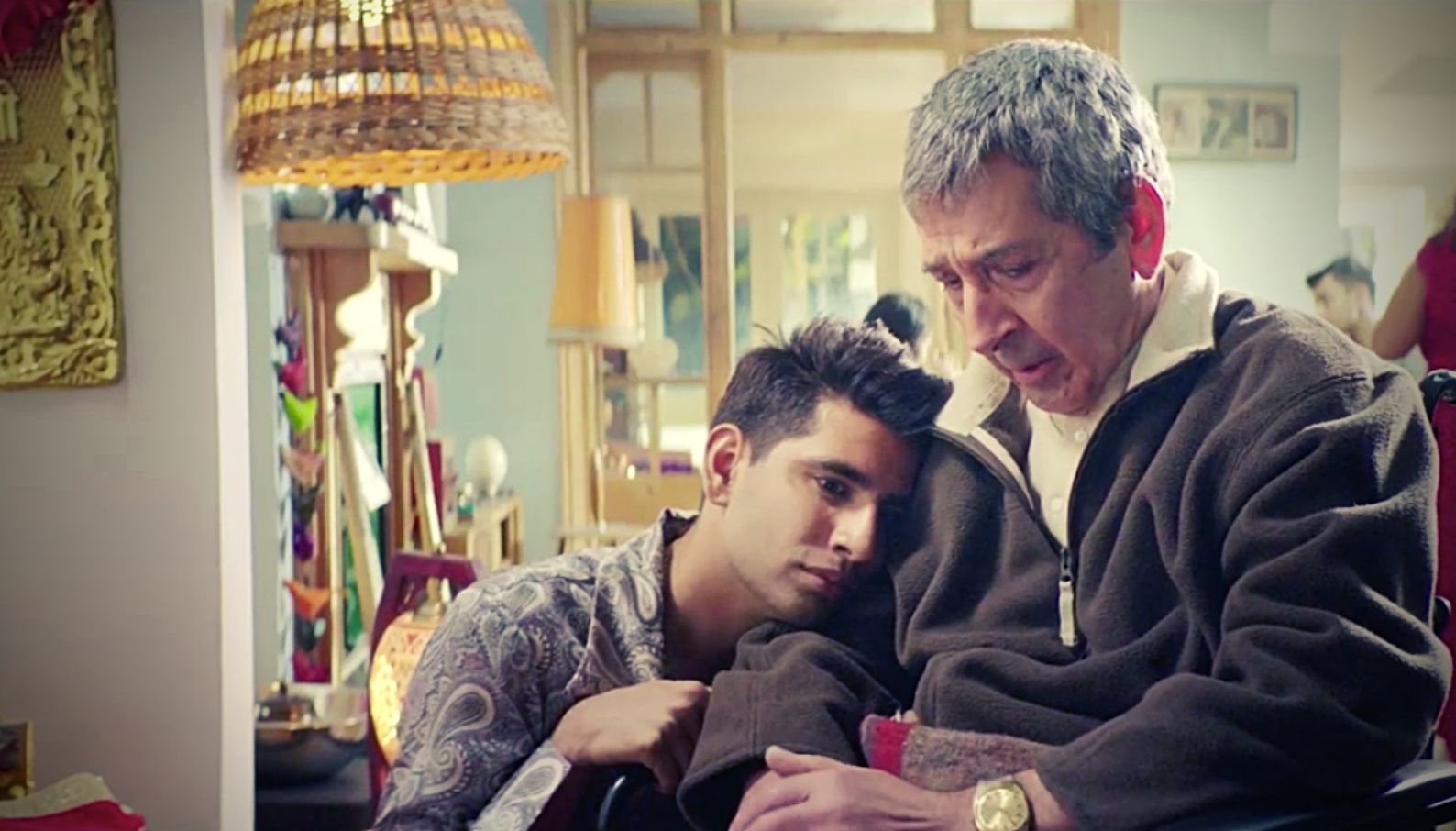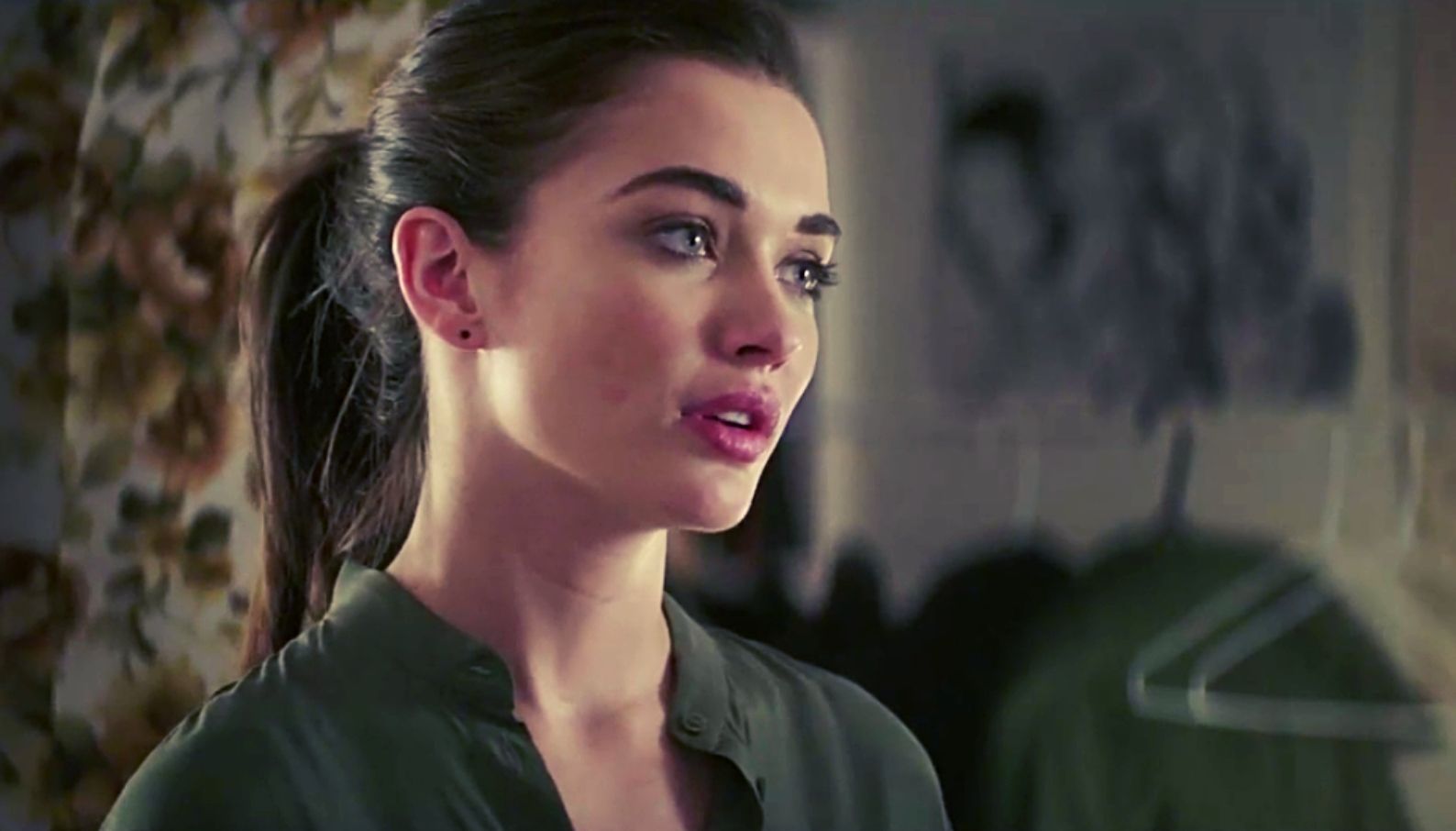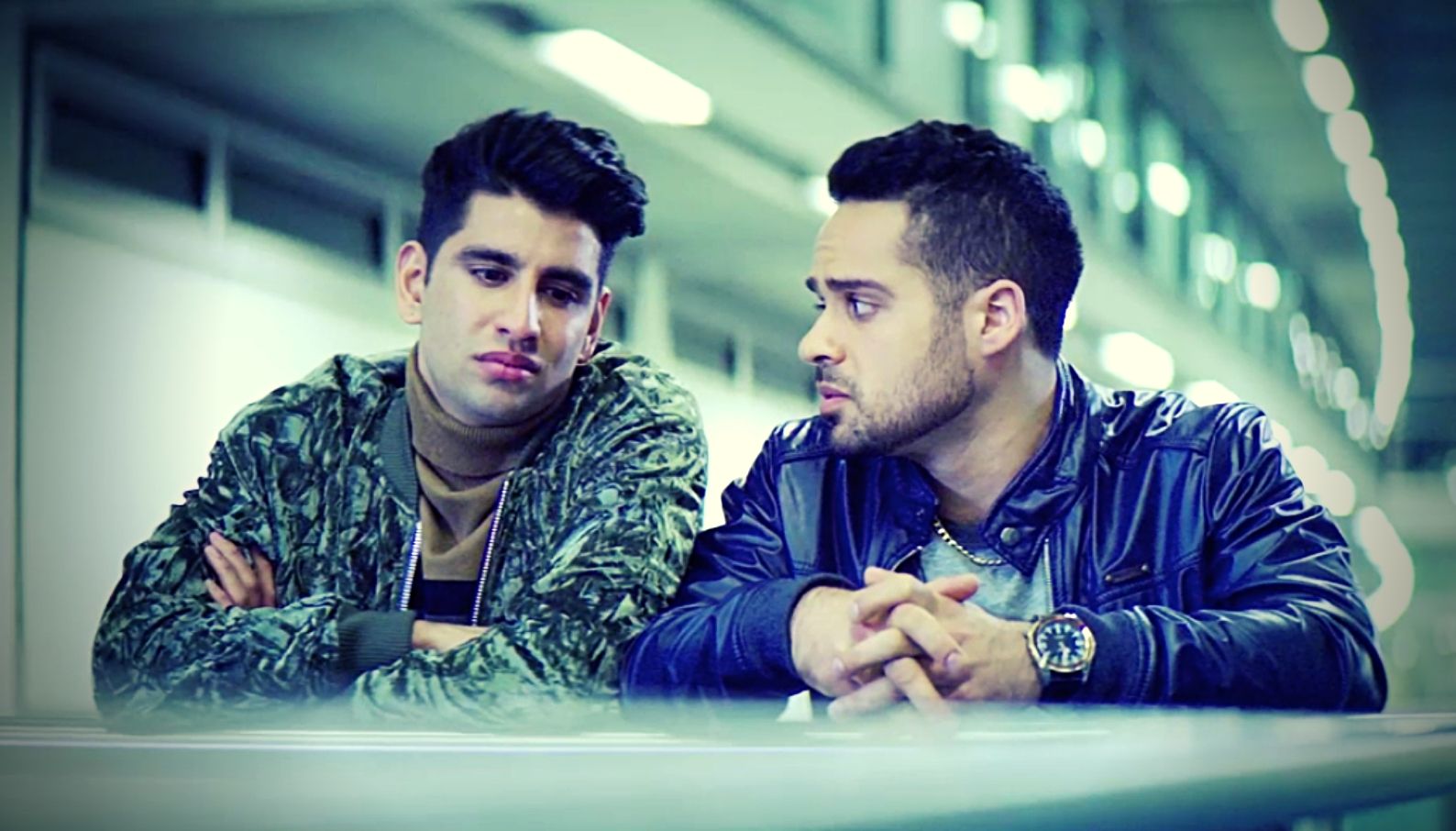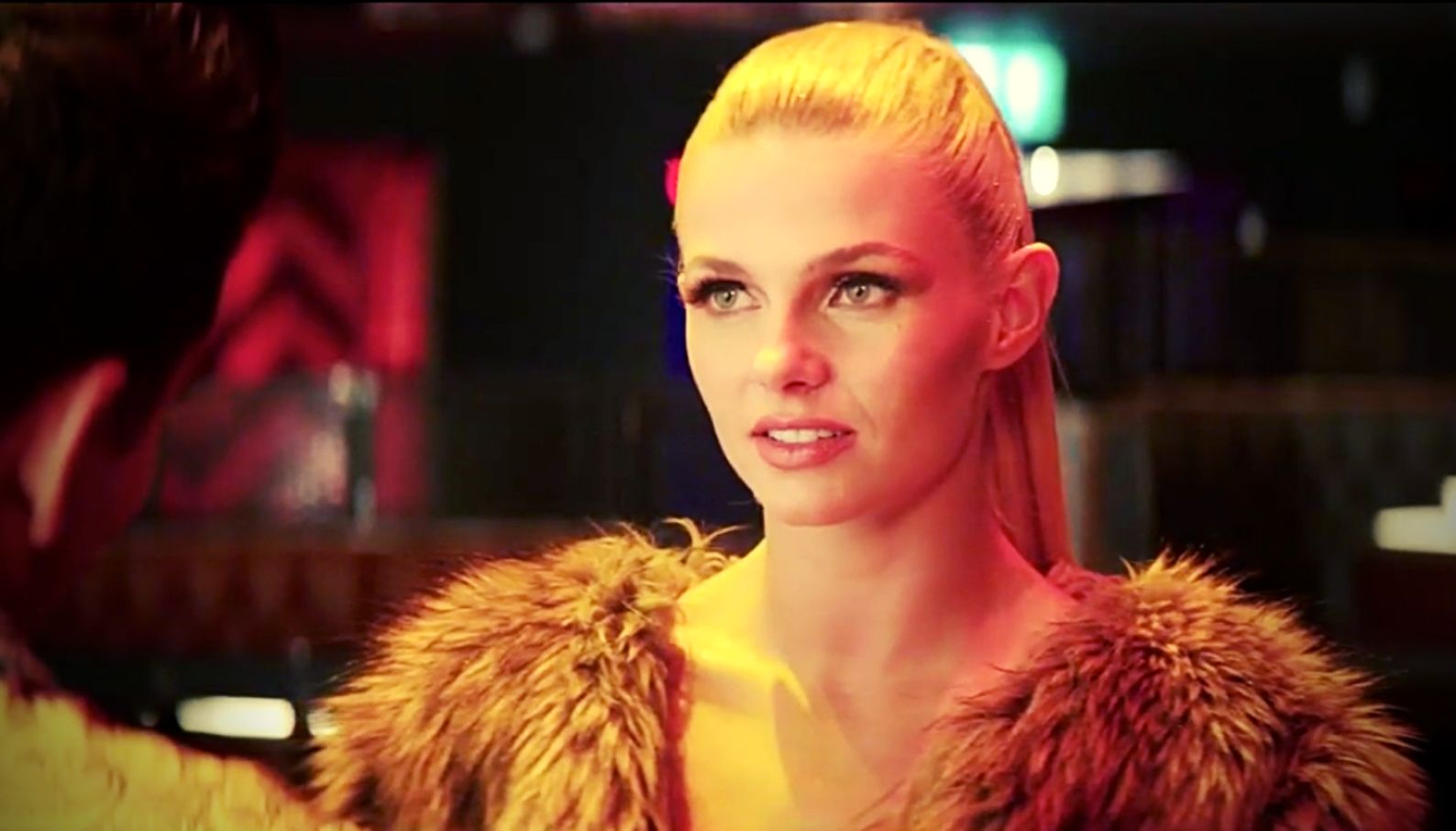Film Review: Boogie Man, 2020
Category : Best Feature (Fiction), Best Producer/Production (March 2020)
Producer – Paul G. Andrews, Scott Millaney
Cast – Kush Khanna, Roshan Seth, Amy Jackson, Aston Merrygold, Nick Moran, Shobu Kapoor, Jerry-Jane Pears, Karan Gill, Prashant Kapoor, Nicholas Prasad, Ramon Tikaram
Coming of age has always been a popular genre in films due to its widespread acceptance. One can relate to this evolving experience where the central character has to go through a conflicting situation which leads to the evolution of the protagonist and an inspiring message for the audience. Growth of the protagonist from youth to adulthood, a self-revelation, fresh treatment, and a feeling of nostalgia makes this subject fascinating. Such films rely heavily on emotional transition, feel-good factor, friendship, societal pressure, and a social message. These films are not only popular with teenagers but with all age groups due to the nostalgia of growing up.
“Movies can and do have tremendous influence in shaping young lives in the realm of entertainment towards the ideals and objectives of normal adulthood.” – Walt Disney
One such coming of age film is Boogie Man, the story of a British Indian teenager Pavan, who is living an oblivious life and is in a cross-cultural dilemma between maintaining Indian cultural identities and British lifestyle. One day his sudden encounter with Stephanie transforms his life forever. Will an encounter with Stephanie take his life for something good or will lead him in big-time trouble? Will Pavan be able to find his place in a cross-cultural surrounding? Boogie Man successfully deals with all of these questions in a light-hearted manner.
Set up in the city of London, Boogie Man is an exuberant journey of a teenager which makes you stay upbeat. Its effective portrayal of cross-culture sensitivities, youthful spirit, emotional connection, and dealing with teenage complexities makes it an interesting film. Heart of Boogie Man is its soundtrack and well-written characters that make it an interesting watch. Film showcase embracing your heritage to connect with ancestral ties and at the same time finding one’s inner voice and passion.
At the outset, the director captures attention with British Indian teenager Pavan grooving to a peppy number and living his oblivious life. His conflict with his grandfather, unfamiliarity with Indian culture, unheeding attitude causes concern to his grandfather and mother. They want him to get involved in the life and to connect with his cultural roots. Pavan complies with them half-heartedly. However, one thing that incites him is his love for the seventies and dance. His passion for the 70s and dance leads him to meet Stephanie and a path to self-revelation.
Pavan is the protagonist and soul of Boogie Man, played by Kush Khanna. He has portrayed his character with full conviction. His character looks believable. Kush has been able to project the conflicting state of Pavan’s mind and his fondness for dance and the 70s’ music effectually. The story allows him to showcase both vulnerable and indifferent sides of Pavan. Kush Khanna surprises the viewer with his amaze reactions to different situations, gestures, and body language. His character of Pavan is eminent and intriguing to watch.
Roshan Seth standout in the role of a grandfather with his compelling performance. He has played both the tough and soft side of Pavan’s grandfather really well. He brings the complexities of ascertaining the fine balance of the Indian value system while upbringing a grandson in London. He portrays a doting grandfather who wants best for his grandson and wants him to make use of life and opportunities optimally which he himself could not avail due to the hardship. Roshan Seth effectively portrays a migrated Indian who has seen life in both India and London, who still holds his cultural heritage and value system. He represents someone with a vigorous family and cultural values who believes in conversation and involvement. His best scene with Pavan is when he asks Pavan about Stephanie and towards the climax. His engrossing screen presence and dialogue delivery lift the drama to quotient in the film.
There are other strong characters like Pavan’s mother played by Shobu Kapoor. She is an understanding mother who wants the best for Pavan and encourages him. She plays the role of a strong mother who has supported family and Pavan’s grandfather after her husband’s demise.
Besides Shobu Kapoor, Amy Jackson has played the role of Pavan’s confidant. Her character is compassionate and mature. Her conversation with Pavan shows her caring side and empathetic nature. Amy has played her role well. There are other characters like Stephanie played by Jerry-Jane Pears, who plays Pavan’s love interest. She plays the role of a model who is obsessed with the 70s. She has a crucial role in the film which leads to the conclusion. Jerry-Jane Pears has played this role with ease. She is confident in her dialog delivery and expressions.
Other characters also support the film well like Danny played by Aston Merrygold brings energy to the scenes, Rama played by Karan Gill who is not quite vocal about his feelings and plays a responsible friend and cousin, uncle Deepak played by Ramon Tikaram, Garry played by Nick Moran who wants to protect Stephanie from Pavan and has an interesting confrontation with Pavan. The role of Sunil played by Nicholas Prasad is another important character who is practical, strong-minded, and understands Pavan very well.
The movie has some good moments when Kush confesses his grandfather about his passion and what matters to him in life. He is vocal but emphatic at the same time. His candid conversation with his mother where she recollects her memories of migration to London. Pavan’s emotional moments with his brother where he remembers his father and says “I was trying to forget what dad was like, but I don’t want to forget.”, makes a strong emotional connection with the viewer.
Coming to Production values, the film has good production design. Visually it looks appealing, be it an authentic look of a British Indian family house, costumes, makeup, color of the film, or locations especially dance sequences. Production design creates the right impact on the viewer and successfully conveys the tone of the film. Overall it justifies the film narrative.
While watching the film, one feels that in a few places things could have been better. For instance, more build-up could have been added to accentuate the tension. This could have been achieved by focusing on major story beats, use of more subtext to add an extra layer of complexity and effective pacing. These finer nuances could have created a stronger impact to take the story forward. Nevertheless, taking care of these shall help the creators whilst working on a sequel. Like some dialogue between Pavan and his family look repetitive. Creating a strong situation around those scenes would have sharpened the narrative to create more depth. On the technical side, like the university scene between Tara and Pavan, where he introduces himself to a girl, some interesting camera angle and subtle editing to capture their facial expressions could have added a stronger impact to the scene. Similarly in the conclusive scene between Stephanie and Pavan, a different angle of the shot could have created more drama. But despite these minute observations, the movie delivers its message.
Coming to film’s Cinematography, the film has been properly lit up. Framing and shot composition look good. The film has been edited well and the story flows from one scene to another coherently.
Overall, the director has dealt with a subject with honesty and commitment. This is evident from understanding the nuances of cultural sensitivities and using it as a backdrop to create conflict. It’s always difficult to achieve a good film without powerful music. The best part is that the Music takes the story forward and renders solidity to the scenes. Especially, one dance number between Pavan and his father has been introduced in an innovative way and it comes out notably. This scene reflects the true spirit of Pavan and his passion. To sum up, the director makes the story look convincing, real, and impactful.
To conclude, what makes Boogie Man a delightful film is its characters, production design, background music, and sensitivity to handle the subject. It is a film that is relatable to youth as well as middle-aged and senior generation. It makes you empathize with Pavan’s state of mind while rooting for his journey into self-realization, family values, and finding calmness within himself. Boogie Man is a cherished experience that is relatable, entertaining, musical, and compelling.
A good watch in today’s challenging quarantine time to uplift your spirit.









